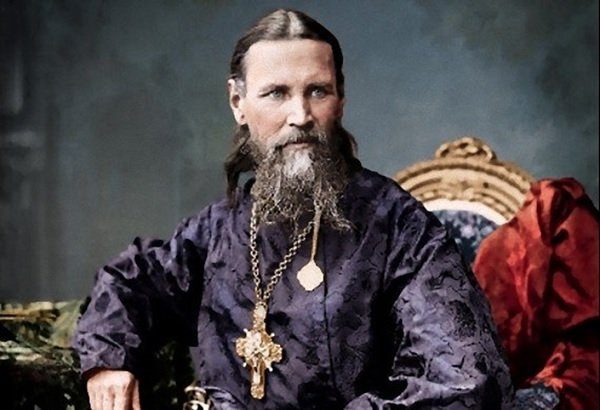‘Keep saying in your heart “Christ is love”. In this way, you’ll love everyone else, all other people, sacrificing what you hold precious, even your very life, for the sake of this love’. (Saint John Kronstadtskij, My life in Christ).
There are three premises which form the base on which the great modern Russian saint, Saint John from Kronstadt (1829-1908), rests the argument above.
The first is that Christ is God, who is love, as Saint John the Theologian uniquely points out: ‘God is love’ (1. Jn. 4, 8). God is love, Christ, as the second person of the Holy Trinity, is love and therefore all his words and actions reflect his love.
The second is that we people are also called on to love, in accordance with the model of Christ, our creator, because he made us in his ‘image and likeness’. We must be like Christ, God incarnate, if we want to believe in him and have a relationship with him. ‘Remain in my love. If you keep my commandments, you will remain in my love’. But for this to happen, we have to break out of the confinement of our sins which isolates us from both God, other people and ourselves. Then we’ll be incorporated into him by our entry into the Church through holy baptism. Because Christ came into the world precisely ‘to gather together into one the scattered children of God’. In reality, what else are Christians who have any awareness if not other Christs, extensions of him. As his infallible lips told us: ‘I am the vine; you are the branches’. And Saint John of the Ladder states: ‘Christians are imitators of Christ, as far as is humanly possible’. So there’s nothing more important for believing Christians than to throw themselves daily into the struggle to remain in Christ’s commandments, that is the commandment of love, as in ‘love one another’. That is the basic aim of this time on earth which has been granted to us by God.
But there’s a third premise that Saint John touches on, which shows his profound knowledge of people who have fallen into sin, that is, all of us. He urges us: ‘Keep saying in your heart’. He knows that Christians have been baptized, chrismated with the holy oil of faith, that they go to church and partake of the spotless sacraments, but they still live in this insidious world where the many and varied snares of the passions and of the wicked devil attract them to evil. Christians concur with the confession of Saint Paul, that in his inner being he delights in God’s law; but he sees another law at work in him, the law of sin, which draws him away from the will of God. So what more do the faithful need to do? They need to be in a constant state of awareness, vigilance, preparedness to observe the holy will of God. Repetition of the words of holy scripture, of the words of Christ (which means that the faithful study these words and, if possible commit them to memory so that they always have them within reach in their mind and heart), keeps them where they should be- at the point where they align their life with the Lord himself. This is why they’re always in a state of inner tension. It may be that some passion has drawn them away from God’s law, but they ‘force’ themselves to resist being led astray. If they’re led astray, they lose God and they literally enter a place of ‘shifting sands’, that is, they become involved with the turmoil of this transient world.
The most critical thing in our spiritual life is to repeat within us the name of Christ, his love, his central commandment to ‘love one another’. We should persist in this holy repetition of the words of the Gospel, so that we can stay close to Christ and he to us. Especially at difficult times when there’s an eruption of the passions: at a hostile action by someone else; at an inappropriate comment of theirs; at an unexpected reaction on the part of our spouse or children. It’s like when we’re driving. If we’re going uphill we hit the gas. It’s the same with the gradients in our life. We should feed our will by stepping on the pedal more, recycling the all-powerful words of our God, as the great saint from Kronstadt reminds us.

















